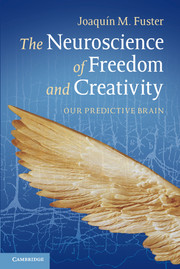5 - Memory of the future
Published online by Cambridge University Press: 05 June 2014
Summary
I dream my painting and then paint my dream.
Vincent van GoghLife can only be understood backwards, but it must be lived forwards.
Søren KierkegaardOnce, the late David Ingvar sent me an article with the title of this chapter for an issue of Human Neurobiology, which I was editing; the article was to be devoted to the prefrontal cortex. The flanking quotation marks barely mollified the brashness of the oxymoron. It took me some time to accept the title – and the article (Ingvar, 1985). Now, after more than two decades, I appreciate the profound wisdom of that expression, for it characterizes the most essential feature of the functions of the human prefrontal cortex: their future dimension. At the same time the expression alludes to the fact that the product of those functions consists of past memory transformed by imagination and projected to the future. Ingvar was a pioneer of functional neuroimaging in the human brain, one of the first to discover the activation of the prefrontal cortex in the mental planning of movements and language. Indeed, what he was trying to convey with his peculiar expression was the evidence that the prefrontal cortex is activated by the internal representation of prospective action. Surely, since the action was yet to occur, that representation could hardly be called “memory.” However, the insight of “future memory” becomes glaring when we consider that in our mind there is no planned or future action without the memory, by association, of similar actions in the past, by us or by others. Planning and decision-making consist in recreating old actions in new fashion.
- Type
- Chapter
- Information
- The Neuroscience of Freedom and CreativityOur Predictive Brain, pp. 125 - 156Publisher: Cambridge University PressPrint publication year: 2013



